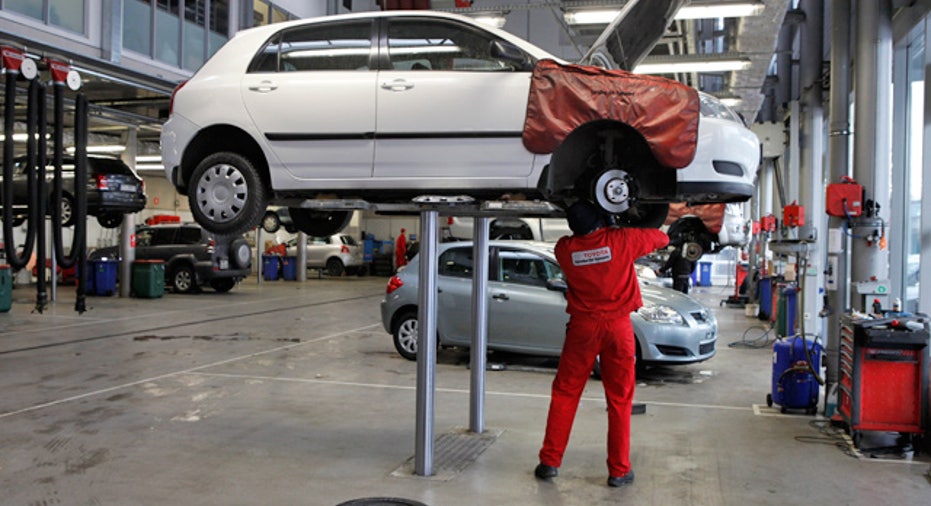Detroit Auto Shops Refocus and Survive Population Exodus

Laurie Moncrieff saw the auto industry fallout coming.
Since 2002, her business, Schmald Tool & Die, Inc. in Burton, Mich., had downsized nearly 75%, to 10 employees from 45. When the Big Three faltered, she was determined to hang on by looking for new emerging markets to create products for.
Moncrieff, 50, shifted Schmald's focus to homeland security and alternative energy companies from manufacturing parts for the auto industry, nearly three years ago. Working with a cluster group of 16 small businesses, she said she found success in the Detroit that so many others had given up on.
Today, her company works on manufacturing energy portable fuel cells and reprocessing products from landfills.
"I believe that when we get into times like this, there is more opportunity than there has ever been," she said. "It's just a matter of surviving."
The small businesses that remain in Detroit's auto industry struggle with pricing and administration, Moncrieff said, but they are necessary to bring new products to market.
"Small businesses are who these innovators need to work with when they first get their products into the market," she said. "But we are at a disadvantage, 25% from administration and 40% from currency manipulation. A lot of times we can't even afford to buy the materials we need for products."
It hasn't been just small business owners packing their bags—Detroit's latest Census report speaks for itself. In the past decade, the city’s population plunged by 25%, with 237,500 residents deserting the once-booming city. In 2010, Detroit's population stood at 713,777--the lowest in almost a century.
The major decrease in population in the city is largely related to, but not exclusively the fault of, the auto industry failing in 2009, according to John Austin, president of the Michigan State Board of Education and a non-resident senior fellow at the Brookings Institution. So much of the attention was on the Big Three faltering, instead of smaller auto shops, who were hit even harder.
"The Big Three get all the attention," Austin said. "They had an incredible ripple effect on the whole food chain of machine shops and parts makers. So many suppliers got used to making one or two products for the Big Three, that they wound up just scrambling. Tens of thousands of firms have gone out of business."
The Center for Automotive Research [CAR] estimates that more than 600,000 jobs were lost in the auto and auto supply industries in the past decade, meaning 400,000 jobs remain in these fields. Of these jobs, Austin said 300,000 are in parts suppliers, while only 100,000 are in the Big Three.
Al Cook, deputy district director for the Small Business Administration's Detroit Office, said while it is hard to determine the exact amount of small businesses that fled the area due to the recession, the significant loss can be seen in the decline of small business loan applications.
In 2008, the Detroit SBA loaned to 99 borrowers totaling $20 million. In 2009, that number dropped to 37 borrowers and $7 million. In 2010, there were 35 borrowers for loans worth $12 million. From year-to-date, Cook said there have been 36 borrowers for loans totaling $16 million, a positive sign that businesses of all kinds are picking up again.
Many businesses have been hit hardest by the huge decline in commercial real estate values, Cook said.
"They have balloon loans on their property, and current lenders are not willing to refinance," he said. "They don’t have the money on hand to pay down loans are refinance."
Jay Baron, president and CEO for CAR, said the tool and dye sector took the hardest hit from the auto industry failing. Historically these shops were strong entrepreneurs with niche capabilities, but it has shrunk sizeably in the past decade.
"The industry is 40% smaller than it was in its heyday in the 90s," Baron said. "Some of these shops are moving south, because there is an auto industry growing there, but by and large the majority of them have closed their doors for good."
Shops that have survived have regrouped and diversified, like Montcrieff, and found success in other areas of manufacturing like health care and defense. Often they need to readdress their business model, Baron said, and the money just isn't the same.
Baron estimates that between 50 and 60% of the remaining smaller supply shops had made the switch to a different industry, and those that haven't are on unstable ground.
This diversification process is often long and difficult, forcing these small shops to completely reboot their equipment and revamp their machinery, Austin said. Many don't have the means to start anew, and are forced instead to simply shut their doors for good.
"Ever since the financial collapse, the credit market is just frozen," Austin said. "It's harder to get financing for their diversification. Trying to find other clients is fundamental, and it’s a huge challenge."
The outlook for 2011 is somewhat better, Baron said, especially for shops that are thinking outside of the auto industry.
"We think there will be some additional attrition. A few shops haven't diversified yet," he said. "Some shops feel things might get back to the way they used to be. That is a dangerous proposition to bet your house on, but some are."



















